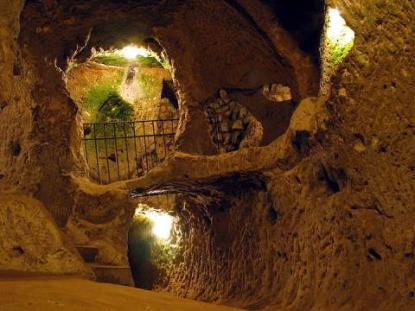What do anonymity and the ease of commenting mean for the state of debate on the Internet? I mull this over all the time as the wake of commenting unspools behind my posts or some other blogger's. Certainly there's a pile-on effect–at DailyKos, people gin each other on in a chorus of like-mindedness, and over at places like Free Republic and Red State, the same thing happens on that side of the aisle. Its tenor is often different, but the same phenomenon underlies it.
Of course there's Godwin's Law, addressing how quickly recourse to Hitler happens. I daresay the Internet has sped up that effect in "discussions." But besides that, it's remarkable to see how often commenters show up who seem to be wandering the Net with a full pack of pent-up vitriol, just looking for a place to unload it–this evidenced by initial posts carrying the kind of insult and instigation that is usually the point where debates end rather than begin. What is the netherworld where discussions go when they start at what used to be an end point?
In that netherworld, whatever it is, having a meaningful discussion seems to only happen if–and it's a rare if–the initial fog of all that vitriol can be dissipated, or if it's absent, an even rarer occurrence. It seems there's an awful lot more instigation and goading out there than actual debate, and it's hard not to fall prey to it, an irritating exercise.
Is it all just sound and fury? Perhaps we are unwittingly creating a particularly revealing, massive manifestation of the unseemly remnants of our worst impulses, a massive well of research that will provide rich fodder in whatever future follows the age of the Internet.
Lots of heavy clouds today, no?
ADDITIONAL: There is something fantastic about the undereground. I used to beg my parents to stop every time we passed a sign advertising a cave when we went on vacations. I'm sure they got sick of stalagtites, but I never did.
And I didn't know Turkey boasted a vast number of underground cities. I want to visit Derinkuyu like crazy–20 floors or so of a vast underground city that could house thousands in case of attack (and apparently did on occasion). Early Christians also took refuge in these cities. Someone discovered Derinkuyu in the '60s, first one room, then the next, and on and on it went. Very cool.



